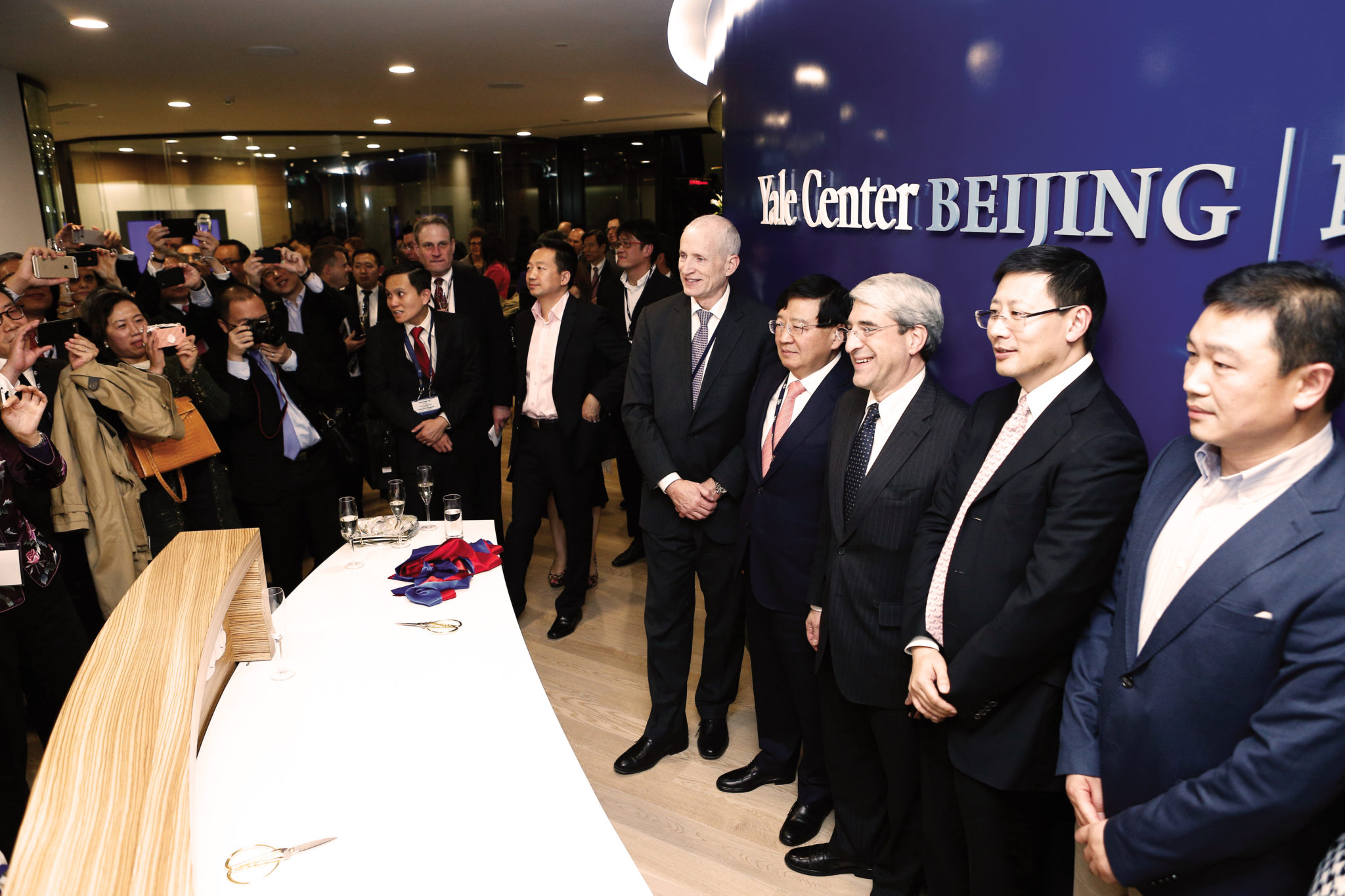
Dan Murphy
As the Yale Center Beijing celebrates its fifth anniversary, the University plans to continue robust programming at the center and further develop its relationship with China.
Located in the Chaoyang District of Beijing, the center is administered by the Yale School of Management on behalf of the University. University President Peter Salovey created the center in October 2014 in an effort to bridge University interests in Asia and enhance Yale’s global presence. According to the most recent YCB report, released annually, the center aims to maintain and promote its “standing as one of the most vibrant foreign university centers in China.” The report also cites plans to facilitate and organize educational programs for intellectuals from “China, the U.S. and beyond.”
“Since its establishment on October 27, 2014, YCB is Yale University’s first and only university-wide center outside of the United States” YCB executive director Carol Li Rafferty ’00 wrote in the center’s latest annual report. “Over the past half-decade, YCB has become a prominent convening space that engages scholars and thought leaders in dialogues that foster openness, connectedness, and innovation.”
Aside from hosting various events and programs, YCB serves as a gathering place for alumni throughout Asia and allows the University to foster relationships with Chinese leaders. YCB is one of three key centers Yale has in the world — the others being the Paul Mellon Centre for Studies in British Art in London and Yale-NUS in Singapore.
According to the 2018–2019 report on YCB, the center will continue its two main speaker series — Yale Starlight Science Series and Greenberg Distinguished Colloquium. The center will also continue to convene leaders to discuss important issues through events like the Yale SOM-Sequoia China Leadership Program and the Women’s Leadership Program.
In the report, Rafferty praised YCB’s increase in programs featuring Yale faculty, students and alumni — a figure which has grown from 35 percent of the Center’s activities in 2014 to nearly 70 percent this year. According to the report, YCB has attracted more than 32,000 visitors over the past five years. Many of Yale’s faculty have spoken at YCB, including Yale College Dean Marvin Chun, School of Music Dean Robert Blocker and School of Public Health Dean Sten Vermund.
“We’ll continue to maintain what we’ve been doing well, but also kind of highlight the university initiative,” Rafferty told the News in an interview. “Because we were the first university-wide center, we brought professors from the Yale School of Drama, the School of Medicine, [School of] Architecture. Everyone — every school — has been to the center, and it’s really a great place for people who would not be able to travel to Yale University to experience it in … a more accessible way.”
Rafferty said that Yale’s decision to open its first and only university-wide center in Beijing was very symbolic. According to Rafferty, “no matter what happens” between the United States and China, the interaction between the two countries is the “single-most important bilateral relationship of the century and the future.” Rafferty added that Beijing, as the Chinese capital, is an “important place” for top academic institutions in the world to be present.
YCB Assistant Director Devin Lau ’09 echoed Rafferty and added that five years after the center’s start, the relationship between China and the U.S. has become “even more crucial.” YCB helps find solutions to global issues, according to Lau, who noted that such problem-solving is important in a world quick to “oversimplify or even completely disengage.”
“Many of the top universities’ mission is really to help humanity to progress, to tackle the most important challenges that we as the world face, whether it’s the environment, whether it’s peace, whether it’s sustainability, energy, poverty,” Rafferty said. “All of these things are problems that transcends borders and national boundaries.”
Lau — YCB’s unofficial representative in New Haven — told the News that there are many unknown and underutilized resources at Yale, such as the Paul Tsai China Center and Yale-China Association.
While Lau noted that the purposes of each of these groups vary, YCB works closely with different Yale programs to form a “stronger connection” between New Haven and China.
“The reality is that nowadays, no matter what field you’re in, it’s hard to avoid dealing with China in some way,” Lau said. “And we’ve found that having a physical space in China for Yale faculty, students and alumni has really helped people to do that, especially for those who may not have as much familiarity with China.”
University Vice President for Global Strategy Pericles Lewis said that the center’s function as a physical space in China helps the university interact with the Chinese public through conferences and the “sharing of information.” Yale Young Global Scholars and admissions events have taken place at YCB, which Lewis said allows Yale to showcase its work to Chinese audiences. SOM Deputy Dean for Executive Programs David Bach ’99 said that YCB is key for collaborating between the two countries. According to Bach, SOM has more alumni in China than any other country outside the U.S.
According to the report, YCB’s official WeChat account has reached over 3.5 million views.
John Besche | john.besche@yale.edu
Alayna Lee | alayna.lee@yale.edu







